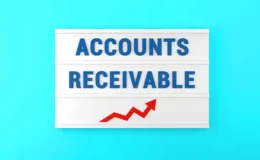One of the most challenging aspects of running an independent venture is maintaining a healthy stream of working capital. Various types of financing can help achieve this goal, factoring being one example. Under such a financial arrangement, a business trades its accounts receivables in exchange for an immediate cash injection. While some entrepreneurs may balk at the concept, this financial arrangement includes a variety of notable benefits.
Speed
Perhaps timeliness is the most valuable advantage these deals bring to the table. Companies hoping to pay down debt fast no doubt find it an attractive feature. Businesses with preapproval receive money to pay off obligations within one or two days. Compare that with loans from big banks, which can take months to process.
This fiscal strategy is also far quicker than chasing down clients that aren’t paying. There’s no telling how long it may take to get delinquent customers to cough up what they owe. Allow a third-party company to handle this headache on your behalf.
Scalability
Businesses that take this financial route need not make a vast commitment. On the contrary, there are no long-term contracts, and participants may choose which receivables they are willing to relinquish. Factoring is an option that can be used when necessary and then set aside the moment it’s no longer helpful. Financiers are usually open to resuming customer relationships after doing so becomes sensible for their clients once more.
Overhead
Also worth noting is how much these financial instruments save on operating costs. Allowing a separate entity to take over responsibilities such as client credit checks helps independent ventures stay lean and mean. The natural expenses inherent in collections, including phone usage and postage, suddenly disappear. These savings can then be applied to any number of areas in need of attention.
Control
Small business operators may put available cash flow to use however they see fit. Funds can go toward increasing employee salaries, building an expansion, or hiring a dependable accounting service. The possibilities are limitless.
Compare this with raising equity by allowing shareholders to purchase a majority stake in one’s venture, which may give them the power to decide how budgets should be spent. Young entrepreneurs typically create startups because they don’t want to follow anyone’s orders, which this scenario would undo.
Factoring may seem like an unorthodox method of generating capital, yet it remains an attractive choice for many reasons. Businesspersons who view this funding option with open eyes could ultimately decide it’s the optimal path forward.




